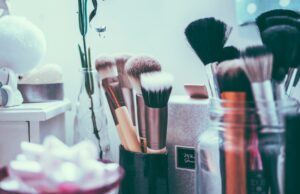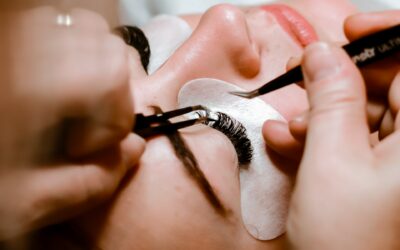Makeup Sanitation Tips
Have you ever wondered where the phrase “clean as a whistle” comes from? To get a pure sound
from a whistle or reed, the tube must be very clean and dry. Even something so basic as a whistle
needs to be clean and dry to function properly. Infection control is the term used to describe efforts to
prevent the spread of disease and kill microbes. The three levels of infection control are sanitation,
disinfection, and sterilization.
We keep foundation, contour, highlighter and blush our faces with makeup brushes every day, but
how often are those brushes being cleaned after the fact? turns out, not enough. According to many
estheticians and makeup artists we should be cleaning up the tools like beauty blenders and brushes
on a weekly basis at least, in order to prevent bacteria, buildup which can ultimately led to unwanted
breakouts, skin diseases or more.one of the most important mistake people do is not washing their
hands. Handwashing means properly disinfecting all skin care implements and surfaces to prevent
cross contamination when bacteria is spread by contaminated surfaces and food.
How Can You Clean Your Makeup Brushes at Home?
STEP 1: Add one drop of Baby soap or 5 drops of makeup cleanser in half cup of lukewarm water
STEP 2: Wet the bristles and gently massage the tips of the bristles in the utensil.
STEP 3: Rinse the bristles, squeeze out the excess moisture with a clean towel.
STEP 4: Reshape the brush head, let the brush dry with its bristles hanging off the edge of a counter,
thereby allowing it to dry in the correct shape. Never let your brushes dry on a towel, the bristles can
become mildewed.
How Can You Clean Your Beauty Blenders At Home?
STEP 1: Wet your sponge and soak it in a bowl of microwavable bowl by adding makeup cleanser
or baby soap.
STEP 2: Keep it in the microwave for about 1 min, wait for at least 30 secs for the cup to cool before
grabbing it.
Step 3: Wring it out and then set it aside to dry, every 3-6 months we should change our blenders
depending upon how much you use it.
Only 70% isopropyl alcohol can sanitize cosmetics, per the CDC. Anything higher will evaporate too
quickly to remain on the surface long enough to fully disinfect. Hence spray on your cosmetics and let it
sit for a few minutes, then wiping the surface with a tissue.
Sleeping with makeup is a big mistake, as it can lead to breakouts, dull looking complexion in the
morning and it can block your nighttime anti-aging efforts. Keep your makeup tools clean and remove
your makeup before going to sleep. Your skin will thank you at the end of the day as it’s our
responsibility to protect our health.


